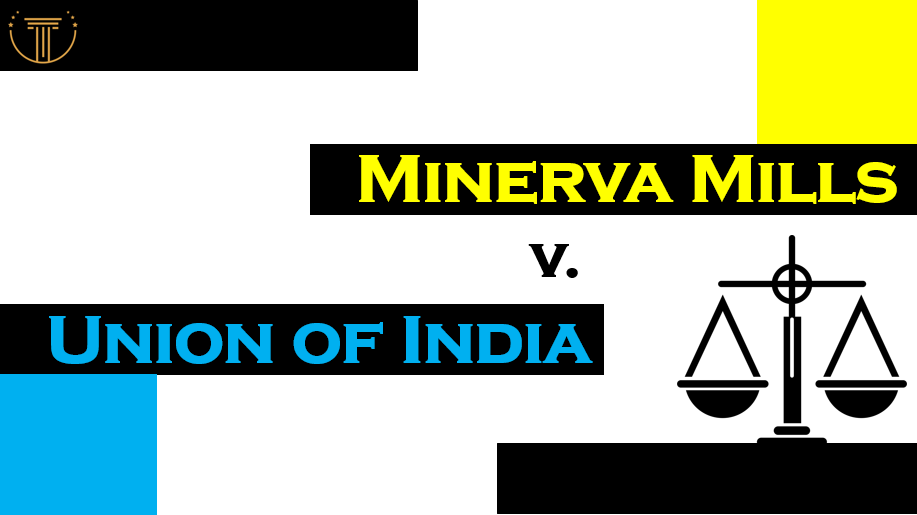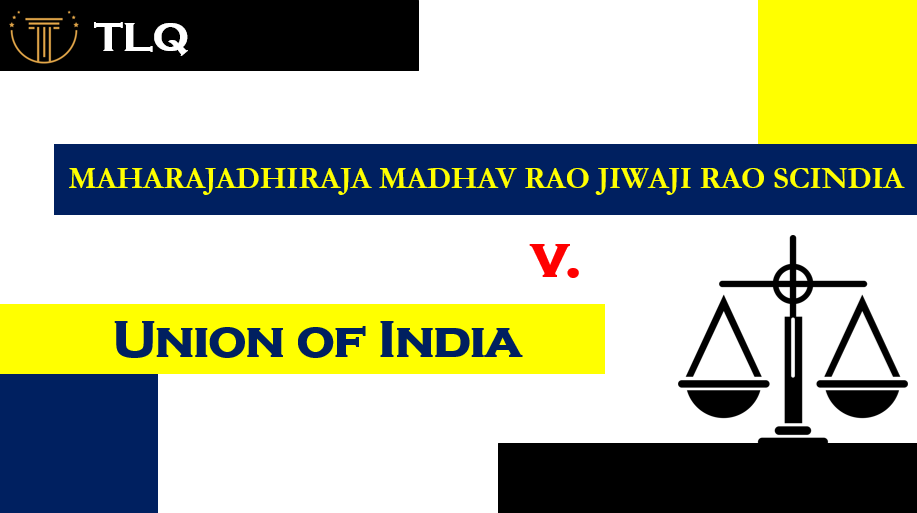Published on 12th February 2025
Authored By: Nikita Rai
Galgotias University
BACKGROUND
A son of the legendary Mistry clan, Cyrus Mistry headed Tata Sons in 2012 as Chairman, while it is a holding firm of Tata Group. Having finished his tenure, Ratan Tata gave up his chair and paved the way for entry by Cyrus Mistry as Chairman. Many feel the able engineer and astute entrepreneur Mistry is going to organise this business house differently and stuff with many new strategic thoughts within the corporation. It was not in the interest of the older group members, including Ratan Tata, that his tenure should continue. Within weeks after Mistry was summarily removed as Chairman in October 2016, a legal battle over corporate governance and family control over one of India’s largest corporations emerged Mistry family had a major stake in Tata Sons through its holding company, the Shapoorji Pallonji Group.
FACTS OF THE CASE
In 2016, Cyrus Mistry was removed from Tata Sons since the latter did not prove to be a good chairman because his strategic decisions taken while running the company were not the best according to the board, and also the management was far away from what group ideals have long been associated with. Mistry opposed the ousting because the action was politically motivated and sparked by resistance from influential members of the group, especially Ratan Tata. According to him, there were other influential members of the Tata family and high-level management officials who did not support his leadership style and the corporate vision that they attributed to the action taken to sack him. Mistry held the argument that the termination was arbitrary and unjustified and, by that action, went against established corporate governance. In 2016, Cyrus Mistry challenged the termination and demanded reinstatement as the Chairman of Tata Sons through a petition submitted to the NCLT. According to Mistry, the judgment was a violation of all the principles that governed the corporate and especially the minority shareholder rights; it was illegal and lacked transparency. Mistry won a case at the NCLT in 2017 that challenged his removal and ordered his reinstatement.
Tata Sons appealed to the NCLAT, however, which in December 2019 reversed the order of the NCLT. The NCLAT ruled that the Tata Sons board had acted within its powers when it decided that Mistry’s dismissal was lawfully permissible. Very misleadingly content with this, Mistry filed an appeal in the Supreme Court of India, which it dismissed in January 2020. Again, upheld was the verdict as the NCLAT judgement established that, indeed, the board of Tata Sons had lawfully removed him.
ISSUES INVOLVED
The question would, therefore, centre around whether the removal of Cyrus Mistry as the chairman of Tata Sons was within the proper ambit of corporate governance laws applied, given the powers and rights according to the board and minority shareholders under applicable corporate and family-dominated enterprises. The case has once again stirred a lot of debate about how Mistry’s Shapoorji Pallonji Group and other minority shareholders were treated fairly at each stage of decision-making in the case.
CONTENTIONS
- Arguments of Cyrus Mistry: Cyrus Mistry said that his removal as the chairman of Tata Sons was arbitrary and opaque, and it infringed on the fundamental principles of corporate governance. He said that adequate cause for his removal, or even that such an action was taken within any decision-making process, wasn’t given; in other words, the resolution regarding his removal was adopted as such. The procedure that was followed was opaque, with less than adequate communication. Mistry further commented that the internal power play was the reason for his dismissal, as there had been resistance from influential people who grew, and among them, Ratan Tata was most opposed since he chose Mistry to succeed him. According to Mistry, this decision of dismissal was not because the group worried about his leadership but due to some political and personal reasons. He says the Tata Sons board has acted unilaterally by violating corporate norms of fairness and transparency in taking such a major decision without due procedure. Mistry says that it was bad for the long-term interests of the group since it was driven more by internal rivalries than by the interest of the company or its stakeholders. He felt that such an action was causing an erosion of trust and confidence, which were necessary for the proper working of a big trading or commercial house.
- Arguments of Tata Sons: Tata Sons pleaded while presenting its case that removal was justified as done in Tata Group’s long-term interest. The problems identified reveal that the managerial style, along with the strategic direction of Tata Sons, lacked the potential to allay the fighting within the organisation. According to the board of Tata Sons, it had lost confidence in the capability of Mistry to take effective leadership. According to Tata Sons, the values and culture that the Tata Group was based on and epitomised by good behaviour, planning for long, and openness did not feature at all when it concerned Mistry’s management approach. According to Tata Sons, removing Mistry was in the best interest of the business to ensure its stability and prosperity in the future. As pointed out by the board, several strategic decisions that he undertook were extreme to criticise; they failed to meet the organisational expectations and consequently further damaged their trust level. Tata Sons clarified that the process taken for sacking Mistry was actually within the framework of the Corporate Governance Act. The board said that the action did not violate any law or governance norms as the corporation acted in the best interest of its shareholders. Based on its obligation to protect the interests of the group, Tata Sons said it had acted within due process and that removing Mistry was fully at the board’s discretion.
RATIONALE
This was more about the preservation of the board of directors’ power to do what it deems best for the business, particularly when it involves the termination of key executives. For example, in the Tata Sons case, a conglomerate owned by a family agreed to board decisions as decided under internal governance procedures of the company and its articles of association, if divisive or unpalatable to all its stakeholders as, those who were aligned with Cyrus Mistry. It argued that boards of directors, especially in family-owned businesses, had a lot of discretion in running the operations of the company, and such decisions were very difficult to challenge unless demonstrated as illegal or unlawful. The courts held that though Mistry objected to the same, Tata Sons Board had deposed him with proper procedures and also in its rights since it is a corporate body. Much attention was drawn by the case towards the concept that business decisions cannot be interfered till then, when prima facie violation of law or governance occurs, regardless of whether it might not be favourable to any shareholder’s desire.
JUDGEMENT
The judgment of the court, more so of the Supreme Court of India, in the Cyrus Mistry case, has been to sustain the right of the Tata Sons board to terminate the services of its chairman, Cyrus Mistry. In its view, the Court found that the board had lawfully terminated Mistry’s services and that such an action did not infringe on any corporate governance guidelines. The judgment highlighted the discretionary power of the board, particularly in a house conglomerate like Tata Sons, where the board decides strategic choices that would favour the business. The case was dismissed on the assumption that it was an arbitrariness or even unconstitutional dismissal and that it had simply resulted from a failure of confidence in the leadership by the Tata Sons board itself. The Supreme Court mentioned that the Tata Sons board had followed the right internal procedure as laid out in the Articles of Association and the company’s governance structure, whereas Cyrus Mistry argued that the dismissal was unfair and lacked transparency in its nature. The court stated that the board was entitled to remove Mistry and that corporate law and legal obligation were neither violated in the process. This clarification by judgment also indicates that even if the board uses its business judgment based on its evaluation of the company’s long-term interests, it might be difficult to reverse those decisions, even though some shareholders or members of management may disagree with them.
The judgment clearly showed that although the courts have the power to intervene in cases of patent illegality or a clear breach of statutory restrictions, they are not empowered to supersede the board’s discretion in matters relating to the strategy and management of the company. It, thus, underscored the demand for openness and good governance, yet, on its clarification, it stated that the determination of whether or not the leadership of the company be changed is within the powers of the board so that such choice does not fall outside the realm of what is legally valid and consistent with the governance standards of the company. Therefore, this judgment defined the legal status of corporate boards on how their management and business decisions are governed, most especially when they operate within the set legal framework and the mechanisms of governance.
INFERENCE
The Cyrus Mistry case has many implications for corporate governance, especially in family-owned businesses, where the dynamics between family ownership and professional management result in complex conflicts. It creates problems in the face of a professional manager such as Mistry, where opposing relatives or other influential owners with stakes in business operations raise an obstacle against their business path. The case has put under the spotlight the role and authority of corporate boards; they get to decide when changes in management and leadership are necessary. There can be a just cause wherein boards fire executives with which they may not have similar visions despite protests from large shareholders and many other stakeholders. That makes it evident how decisions over such issues must be presented in a fair rather than in a way that throws corporate governance out the window. It reminds us that, though boards are at liberty to make strategic decisions, especially in family businesses, such decisions should be made with respect for the principles of good governance. This ensures that the interest of the business and, by extension, that of all shareholders, including the minority, always serves to preserve stability and confidence over the long term.
REFERNECES
- Varghese George Thekkel†, Tata v. Mistry: A Case for Greater Protection of Minority Shareholders’ Rights, (2021), SSC Times <https://www.scconline.com/blog/post/2021/05/15/tata-v-mistry-a-case-for-greater-protection-of-minority-shareholders-rights/>
- Tata Consultancy Services Ltd. V. Cyrus Invvestment Private Ltd. 2021, (2024), iPleaders.in < https://blog.ipleaders.in/tata-sons-v-cyrus-mistry-case-analysis/>
- Ramachandran J & Savithran Ramesh, Tata Vs Mistry: Corporate Governance And Judgment Calls, IIM Banglore < https://www.iimb.ac.in/sites/default/files/2022-03/tata-mistry.pdf>
- Khyati Savla, Tata Sons V/S Cyrus Mistry, < https://www.mangalamjobs.com/wp-content/uploads/2021/05/TATA-v-CYRUS-MISTRY.pdf>
- Nabodita Ganguly, Tata-Cyrus Mistry Feud: How the Desirable Successor Ended Up Being a Rival, (2024), Outlook Business < https://www.outlookbusiness.com/explainers/tata-cyrus-mistry-feud-how-the-desirable-successor-ended-up-being-a-rival>


